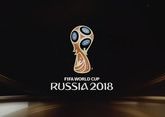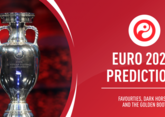Russia is already enjoying a World Cup windfall of positive international PR and a surge in national pride after staging a widely praised tournament and seeing its team defy rock-bottom expectations. The event also gave its economy a welcome shot in the arm, the country’s top bank said.
Financial Times reports in its article Russia’s economy scores as World Cup fans splash out $1.5bn that visiting football fans spent $1.5bn during the one-month tournament, according to state-owned lender Sberbank.
The country welcomed foreign fans with visa-free travel and spruced-up host cities, and a notable relaxation of heavy-handed policing encouraged street parties and a carnival atmosphere, fuelling celebrations that saw bars run out of beer and cafes open all night.

Sberbank said in a research report that its network alone had serviced 899,000 foreign bank cards from 194 countries during the month-long tournament, with one Chinese bank card used to make purchases in 11 different cities.
Fast-food outlets and restaurants saw spending of Rbs6.2bn ($98m), Sberbank said, with hotels accounting for Rbs5bn — though the real figure was likely to be far higher given that accommodation was also bought in advance or through foreign travel agents.
Russia’s government has said that about 3m people visited the country for the tournament, suggesting an average spend of $500 per person. Most fans visited only one location — Sberbank said that 75 per cent of foreign cards were used in a single city.

Spending often related to teams’ performances, the bank said, with fans splurging the most — 36.5 per cent of the total — during the second week of the group stage, when all teams were still involved. Spending often peaked after crucial victories or when countries were sent out, as fans prepared to head home.
“Judging by their expenses, people from Middle Eastern and African countries left Russia rather early,” the bank said. No African or Middle Eastern nation made it through to the knockout stage.
“The map of expenses also shows the change of fan activity during days when teams had big wins and after they were knocked out. Croatians, for example, spent actively on 18 June [when their team scored its first win] and 9 July [as it prepared for the semi-final],” it added.

Nikolskaya Street in Moscow, a pedestrian avenue close to Red Square, where after-match parties were often centred, was a big drain on visitors’ wallets, Sberbank said.
The average bill on the street, which is packed with bars, restaurants and tourist shops, was Rbs8,800, with Rbs12.5m spent on June 18 alone. Overall, spending on the street was up 3.5 times from normal levels.











